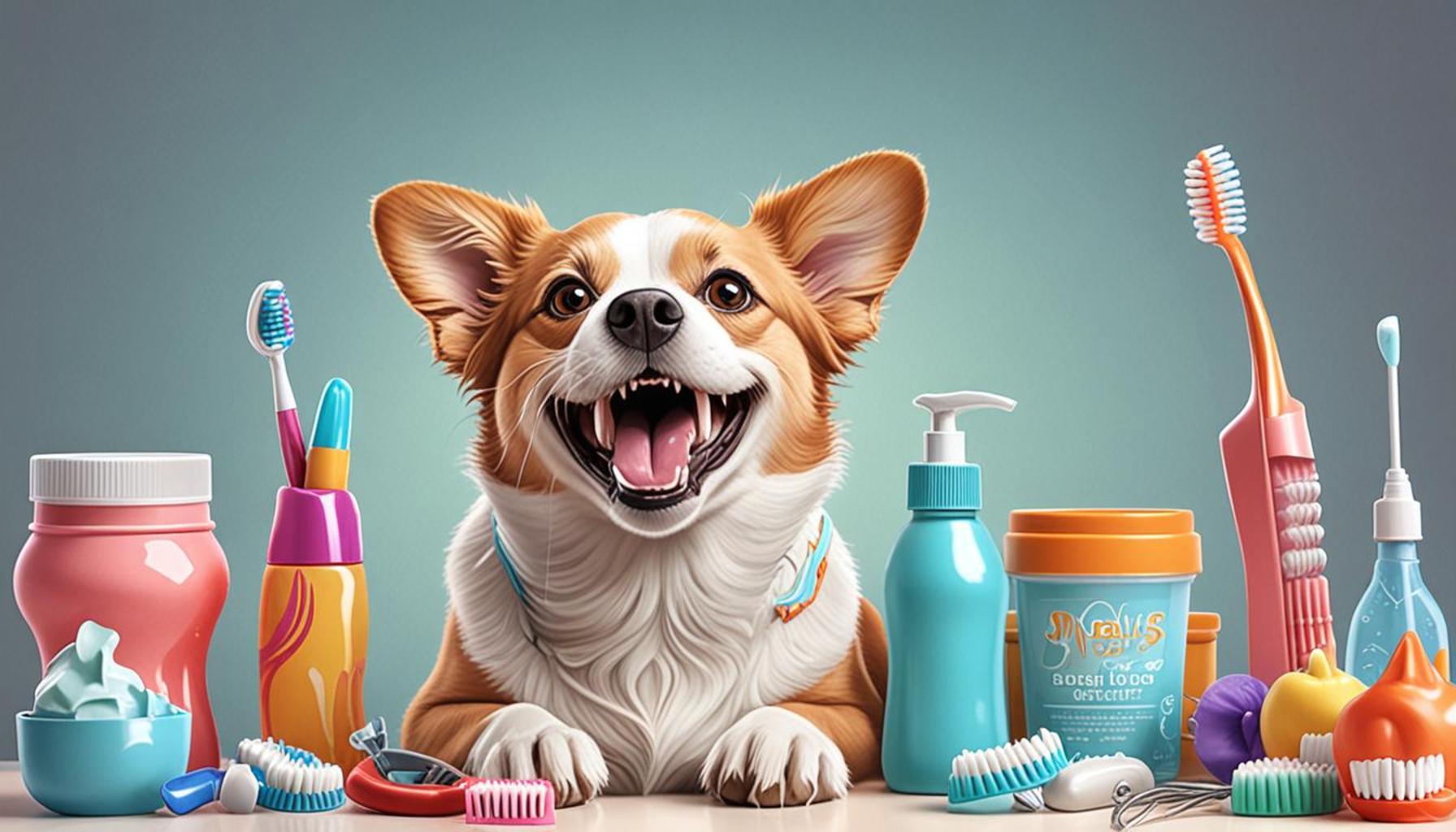The influence of socialization on the mental health of pets

The Importance of Socialization in Promoting Pet Mental Health
Socialization is a multifaceted process that extends beyond mere play; it is integral to a pet’s overall development, emotional maturity, and mental health. Through interaction with their surroundings, fellow animals, and humans, pets acquire essential behaviors and social skills that heavily influence their psychological well-being.
Engaging in positive socialization experiences lays a strong groundwork for fostering mental health. Pets that receive ample opportunities to socialize tend to be more adaptable and confident. Conversely, the lack of social exposure can lead pets to experience a myriad of challenges, including:
- Anxiety and general fearfulness, especially in unfamiliar environments or situations.
- Aggression towards strangers, other pets, or even household items, often stemming from insecurity or fear.
- Destructive behaviors, such as chewing, excessive scratching, or inappropriate elimination, often triggered by boredom or stress.
In recent years, pet owners in the United States have increasingly recognized the significance of effective socialization. Activities such as puppy training classes, dog park gatherings, and even playdates at home are becoming commonplace. These settings not only provide structured socialization opportunities but also serve as valuable learning experiences in understanding canine or feline body language and communication cues.
Benefits of Socialization
The benefits of proper socialization are substantial. For instance, well-socialized dogs often have better behavior in public spaces, making excursions to places like pet-friendly cafés or outdoor events less stressful for both the pet and the owner. Moreover, a pets’ ability to interact positively with other animals can stave off potential conflicts and enhance their daily experiences.
Consequences of Isolation
Isolation can have severe consequences on pet behavior. Pets that are kept in solitary environments often display signs of loneliness and stress, which can manifest as severe anxiety or, in some cases, depression. For example, a dog left alone for extended periods may develop separation anxiety, leading to barking, whining, or destructive behavior when the owner is away.

Strategies for Effective Socialization
To ensure pets derive the maximum benefits from socialization, owners must implement strategies tailored to their pet’s needs. This includes gradual exposure to new environments and situations, positive reinforcement for calm behavior, and engaging in supervised interactions with various animals and people. It can also be beneficial to consult with professional trainers or veterinarians who can provide guidance on socialization plans tailored specifically for your pet.
By understanding the vital role socialization plays in pets’ lives, owners can take proactive steps. This, in turn, can lead to happier, healthier companions that are well-adjusted to their surroundings.
DISCOVER MORE: Click here for insights on natural nutrition for pets
Understanding the Role of Socialization in Pet Well-being
Socialization is not merely a series of interactions; it is a crucial developmental pillar for pets that influences their mental health throughout their lives. Early exposure to diverse environments, people, and other animals equips pets with the skills necessary to navigate the world confidently. This phenomenon is particularly significant during their formative years. Puppies and kittens benefit immensely from early social experiences that help shape their behavior and responses to various stimuli.
A well-socialized pet typically exhibits a range of positive traits, including:
- Confidence: Pets who encounter new situations and individuals early on are generally more confident and less apprehensive in unfamiliar circumstances.
- Adaptability: Socialized pets are more capable of handling changes in their environment, such as moving to a new home or meeting new people.
- Emotional Stability: Regular interaction helps pets develop healthy emotional responses, allowing them to manage stress more effectively.
Furthermore, the benefits of socialization extend beyond individual pets to the overall well-being of households. A well-adjusted pet can contribute positively to family dynamics, facilitating enjoyable outings and interactions. For instance, dogs that have been properly socialized are often more welcome in pet-friendly establishments, reducing anxiety for both the animal and the owner during excursions.
The Positive Impact of Group Play and Interaction
Group play with other pets offers irreplaceable advantages in social settings. Here, pets learn to communicate and establish their social hierarchy in a safe and controlled environment. They are also able to practice critical skills such as bite inhibition and appropriate play behavior. These interactions play a significant role in mitigating aggression and fear-based responses by teaching pets how to interpret body language and vocal cues from their counterparts.
In addition, supervised socialization activities between pets and children can create harmonious relationships that benefit both parties. For example, a well-socialized dog is more likely to respond positively to a child’s playful advances, while an isolated animal may react defensively, potentially leading to undesirable outcomes.
Long-term Effects of Insufficient Socialization
The repercussions of insufficient socialization can be both immediate and long-lasting. Pets that are consistently isolated are at a higher risk of developing fear-based behaviors, which can escalate over time. For example, a lack of interaction may cause a pet to react with anxiety when encountering new sounds or strange environments, potentially leading to behavioral issues that are more challenging to address later in life.
Beyond behavioral concerns, the absence of socialization can also contribute to serious mental health issues such as loneliness and depression. Pets that do not have companionship or stimulation often resort to self-soothing behaviors, which can manifest in various forms, including obsessive-compulsive disorders. Addressing these issues early through intentional socialization can significantly improve a pet’s quality of life, allowing them to thrive.
The Influence of Socialization on the Mental Health of Pets
In understanding the importance of socialization for pets, it is essential to delve into the various aspects that contribute to their mental well-being. Animals, much like humans, thrive on connections and interactions. Socialization offers pets the opportunity to develop crucial life skills and build resilience against stressors. Studies show that animals exposed to diverse environments and different individuals are more likely to exhibit balanced behaviors and positive emotional reactions.Furthermore, pets that regularly engage with other animals and humans can experience a decrease in anxiety-related behaviors, such as excessive barking or destructiveness. Social interaction plays a pivotal role in fostering confidence, which ultimately enhances their adaptability to new situations. When pets become comfortable in various settings, it leads to a reduction in fear and an improvement in their overall quality of life. Now, let’s take a closer look at specific advantages of socialization:
| Advantage | Description |
|---|---|
| Enhanced Behavioral Skills | Socialization teaches pets how to interact with others, reducing aggression and fear-based responses. |
| Reduced Stress and Anxiety | Regular interactions help build confidence, leading to less anxiety in unfamiliar situations. |
Socialization not only benefits the animal’s immediate well-being but also contributes significantly to their long-term mental health. By investing time in socializing pets through exposure to various environments, encounters with other pets, and community interactions, owners can ensure a happier and mentally balanced life for their furry companions. Engaging in structured socialization activities, such as obedience classes or playdates, enables pet owners to foster a loving and healthy relationship with their pets, paving the way for a lifetime of happiness and stability.
DIVE DEEPER: Click here to learn more
The Importance of Ongoing Socialization Across the Lifespan
While early socialization is critical, it is essential to recognize that the need for social interaction does not cease after the formative months of a pet’s life. In fact, ongoing socialization throughout a pet’s life can significantly enhance their mental health and adaptability. Frequent exposure to new experiences, be it through interactions with other animals, humans, or the environment, helps maintain a pet’s mental acuity and emotional resilience.
Pets, much like humans, benefit from continual learning and social engagement. Engaging in regular social activities can help prevent behavioral regression that sometimes occurs in pets as they age. For instance, a senior dog that has spent years in a stable environment may still wish to engage in social play, and denying that can lead to behavioral changes manifesting as anxiety or aggression towards strangers or new situations. This illustrates the need for pet owners to prioritize ongoing social exposure.
Structured Activities and Classes: A Gateway to Social Enrichment
Participating in structured activities such as obedience classes, dog sports, or pet meet-ups can offer valuable opportunities for continual socialization. Not only do these experiences expose pets to other animals and people, but they also provide mental stimulation through training and learning new skills. According to animal behaviorists, pets that engage in regular classes often demonstrate improved behavior and lower levels of anxiety. For instance, programs like puppy kindergarten focus not only on obedience but also on fostering healthy interactions among young dogs.
In addition, engaging pets in social activities, such as community events or visiting dog parks, can further enhance their experience. These events provide a chance for interaction with both human and animal companions while encouraging pets to explore various environments and situations without fear or aggression. A well-adjusted pet that experiences different social settings is less likely to feel threatened by changes or new stimuli in their surroundings.
The Role of Pet Owners in Facilitating Social Connections
Pet owners have a significant influence on their pets’ socialization habits. Actively seeking out opportunities for their pets to meet other animals or individuals can greatly improve the pet’s social skills and confidence. However, it is equally important for owners to recognize signs of stress in their pets. Gradual exposure to new environments and positive reinforcement for good behavior during social interactions can go a long way in building a pet’s confidence.
Moreover, the bond between pet owners and their animals is crucial in shaping how well a pet adapts to social situations. Responsive and caring owners can provide a calming presence that helps ease nervous pets into new experiences. For example, taking the time to introduce a dog to varied situations at its own pace, rather than forcing them into uncomfortable scenarios, fosters a sense of security and trust.
Animal Welfare and Community Support
The well-being of pets often extends into the community as well. Animal shelters and rescues frequently host social events aimed at promoting the socialization of pets awaiting adoption. These initiatives not only prepare pets for life in a home but also address important public health concerns. According to the American Veterinary Medical Association, well-socialized animals are less likely to exhibit aggression or behavioral issues, leading to a lower rate of animal relinquishment or abandonment.
Bringing pets into environments where they can engage with humans and other animals thus strengthens community bonds and promotes responsible pet ownership. As more pet owners understand the importance of socialization for the mental health of their pets, the collective impact on animal welfare can lead to healthier and more harmonious communities.
LEARN MORE: Click here for insights
Conclusion: Socialization as a Pillar of Pet Mental Well-Being
In conclusion, the role of socialization in enhancing the mental health of pets cannot be overstated. From their very first experiences as young animals to their ongoing interactions as seniors, social engagement fosters emotional resilience, agility, and overall well-being. As we explored, pets thrive in environments rich with opportunities to connect with other animals and humans, enriching their lives and helping alleviate potential behavioral issues. This ongoing need for social exposure emphasizes the importance of conscientious pet ownership.
Moreover, structured activities, whether through obedience classes or community events, serve as gateways for positive social interactions. They not only enable pets to learn and adapt but also promote confidence as they navigate new experiences. Pet owners hold a critical responsibility in facilitating these connections, which shapes a pet’s capability to handle the varying stimuli of life, strengthening bonds and alleviating anxiety.
Ultimately, as public awareness grows concerning the importance of socialization in animal welfare, we witness significant repercussions on overall community health. By prioritizing the mental health of our pets through vigilant socialization, we cultivate not just happier animals, but healthier and more compassionate communities. As you reflect on your own pet’s social needs, consider how these practices can create a lasting positive impact, encouraging deeper connections within your family and beyond. Engaging with your pet in new environments can open doors to a fulfilling and enriched life, promoting not only their happiness but yours as well.


